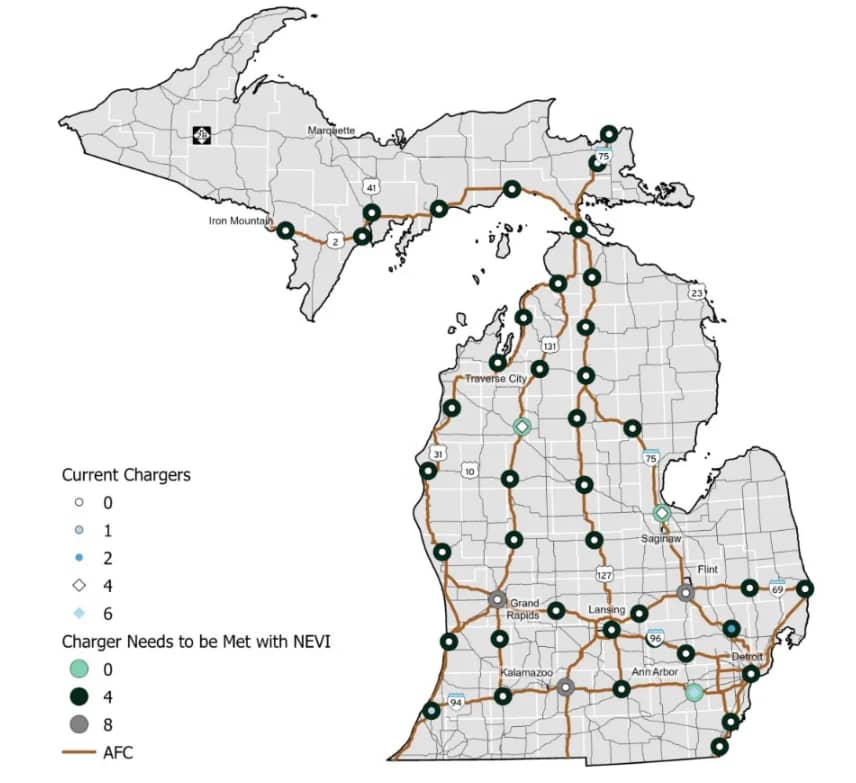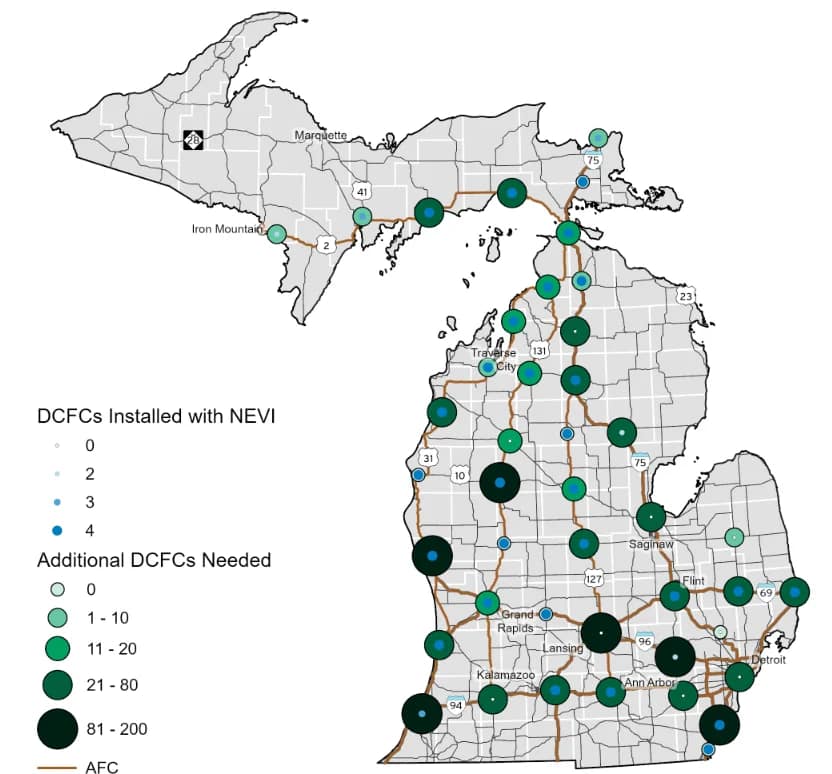The state of Michigan has been working diligently to build out a statewide electric vehicle (EV) fast-charging network through funding from the National Electric Vehicle Infrastructure (NEVI) Formula Program. Multiple state agencies are coordinating under the leadership of the Michigan Department of Transportation (MDOT) to deploy funds effectively and ensure the network meets the needs of all Michigan residents.
Michigan FY 2024 Approved Plan
Funding Sources
The $5 billion NEVI Formula Program is the formula-allocated portion of the $7.5 billion in EV infrastructure funding made available by BIL/IIJA. It aims to provide a network of 500,000 ultra-fast EV charging stations along AFCs. The State will receive $110 million in NEVI funds between FYs 2022-2026, which will be used to plan, install, operate, and maintain the infrastructure. The NEVI Formula Program requires a 20% non-federal match, which the State anticipates being met with private-sector matching funds. See Section 8.3 for more information on how the State is preparing for this.
The remaining $2.5-billion competitive grant program designed to expand EV charging access throughout the country, including in rural and underserved communities, was announced in March 2023 as the Charging and Fueling Infrastructure Discretionary Grant Program. The State submitted a request for funding in this grant program in 2023. The State will continue to evaluate this grant opportunity to further the State’s EV deployment efforts in the future.
In addition, funds from other formula-based programs, such as the Carbon Reduction Program, Congestion Mitigation and Air Quality Improvement Program, Surface Transportation Block Grant Program, and National Highway Performance Program, will be explored and utilized to the extent possible to build out the EV charging network further and supplement NEVI funding.


As of September 2022, Michigan received formal approval from the Federal Highway Administration (FHWA) for its Michigan State Plan for Electric Vehicle Infrastructure Deployment. This plan lays out Michigan’s vision and goals for the network as well as implementation strategies. It discusses coordination among agencies like the Michigan Department of Environment, Great Lakes, and Energy (EGLE), Michigan Department of Labor and Economic Opportunity (LEO), and Michigan Public Service Commission (PSC).
Through its 2023 update to the plan, Michigan has provided details on progress made since the initial version. This includes outlining Michigan’s alternative fuel corridors that are targeted for initial charger deployment under NEVI. It also shares more information on existing chargers, statewide electric utilities, and the growing EV market in the state.
A key strategy discussed is Michigan’s two-step contracting process to award NEVI funds. A request for qualifications was issued in June 2023 and prequalified bidders for the work. A request for proposals will follow later in the year. This will facilitate installation of new fast chargers along corridors by 2023 as designated in the plan.
The update demonstrates Michigan’s commitment to implementing NEVI efficiently and equitably over the next few years. Coordination with utility partners and initiatives like EGLE’s Charge Up Michigan program will support this effort. NEVI funding is enabling Michigan to expand critical EV charging access statewide and boost adoption of these vehicles.